
The Benefits of the Ear to Instrument Connection
I recently watched a video performance by the amazing classical pianist Yuja Chang. I’ve seen her memorizing motion and heard her virtuosic playing before, but something hit me after seeing
Categories:
Categories:
Since my interview with Richie Beirach for the Jazz Master Summit more than a year ago, we’ve collaborated on a great many writing projects for books and articles.
The loss to the poor students at the Mendlesohn School of Jazz in Leipzig is my gain. Richie’s retirement from the Mendlesohn School mandated by German law leaves him without an outlet for his vast experience and knowledge. And trust me, Richie is a fire of passionate thought about all things music and it wasn’t extinguished by retirement.
More on this coming up.
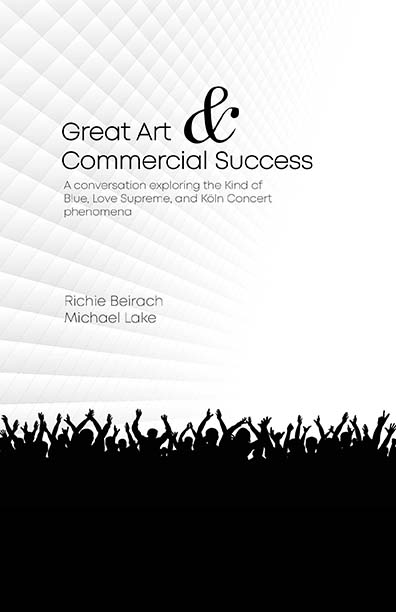
We are now on to our next project and for this, we’d like a little of your help.
The 80+ comments from that post reveal a certain frustration, confusion, and question regarding the way forward in expressing one’s authentic very personal musical voice.
Feel free to add your own comment to that post since I am still very interested in your thoughts. (Beware of a few firey land mines where Richie replied to a couple of comments with which he strongly disagreed!)
In this new project, Richie and I want to explore in-depth how an improviser plays what they hear inside themselves. How does one intuitively and emotionally feel the flow of music and time without the paralyzing friction of thinking about changes, scales, form, time, and everything else occupying our mind as we play jazz?
This is a theme in my Improvisation Savvvy course and in so many of my books, videos, and writings. I believe that tapping into Richie will make this exploration a groundbreaking addition to the jazz education literature.
We are formulating questions right now that will help structure the piece. Questions like:
The help we’re asking from you is to share within the comments of this post your challenges that get in the way of your authentic musical flow and personal expression as you improvise.
We are not writing an academic text on what to play over changes. Far from it. We’re exploring and offering remedies to the very real types of musical challenges you encounter when you play over tunes, at whatever level you find yourself – beginner to professional.
Richie is constantly reminding me that professionals wrestle with these very same questions and challenges in their own way. And I remind him that the guidance coming from this project will provide benefits to players of all levels.
I look forward to helping you elevate your own personal musical journey and reading your valuable input.
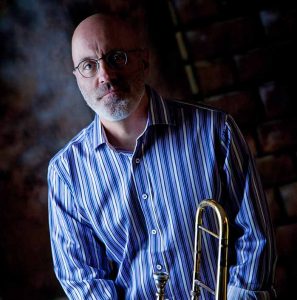
Trombonist, author, marketer, & tech guy
Share this post…

I recently watched a video performance by the amazing classical pianist Yuja Chang. I’ve seen her memorizing motion and heard her virtuosic playing before, but something hit me after seeing

I have created a AI chatbot called Jazz Master Chat that draws from 75 hours of interviews from my Jazz Master Summit event a couple of years ago. I interviewed
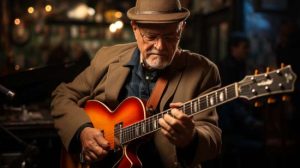
What is jazz improvisation? Let’s first define what I mean by jazz improvisation. Jazz improvisation is a spontaneous conversation, but instead of words, we use notes. Look at two possible

My recently turned 18 year old son is a passionate photographer He 8217 s got himself a little business

A couple weeks ago I sent Richie Beirach a YouTube clip from the movie Whiplash as a bit of
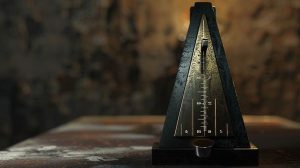
I originally meant to write this as a reply to a comment Richie Beirach wrote on my blog But
Tools for helping musicians at all levels learn about jazz and play to their full capability.
Web design and marketing by:
Michael Lake @JazzDigitalMarketing.com
This is just a fake book example for the type of website I can build for you. Just trying to use a little humor here!
16 thoughts on “My new project with Richie Beirach”
Recently I spent a few months learning “Along Came Betty” with melody and chords on my TS and AF. Other standards like, “I should care,” I would just play the melody. As I don’t get to play live much these days, I feel that this approach takes care of long tones as well as playing in extreme ranges of the horn, and being able to challenge my ears as well as learning to play in foreign keys. I ope this will make me a better improviser.
I think that all the points presented are real challenges which deserve special attention.
For my part, my biggest obstacle is: how to free myself from the form to concentrate on the creative aspect? In other words, how to hear the form scroll in my head while playing freely.I have always admired improvisers who do not play in boxes, with anticipations or delays. It seems to me that my only reference point in order to orient myself, is the implicit harmony of the sentence.
So ,for example, if I delay my resolution, I’ll lose the sense of the form because it’s linked with the phrase. I noticed the same issue with space so I tend to densify my choruses not to lose the form.
I tried singing the bass while playing the phrase but I find it difficult (maybe I should persevere).
Hope I’m clear enough.
I am currently working on a ( constructed /prepared , what ever you like to call it ) solo for the C section changes in Lush Life ( Transposed to A Major ) . There are 6 key changes ( I think ) , so it is a real challenge…. trying to avoid playing the obvious ii V 1 cliches is not easy if, like me, you can’t always ” hear” the lines before you play them. Horn players seem to transfer ideas from brain to mouth and fingers at ease…… . To me improvising is like map reading, deciding on the route through the changes and trying to avoid taking the wrong road ( i.e. landing on a wrong note or messing up the timing). What actually gets in the way for me is knowing TOO much about jazz harmony, scales, arpeggios, thus getting stuck in a formulaic rut. Oh to be able to compose brilliant melodies on the hoof like my idol Jim Mullen. I am a guitar player by the way.
I Will just ecoo what Simon says, because all that is true for me as well
Simon,
Jim Mullen never disappoints and I have seen him play constantly since the 70s until just before I left the U.K. a couple of years ago. He does rely heavily on a few things but that doesn’t seem to matter and he really connects to an audience. What does he have to say about his approach in workshops? (I am assuming you are Simon from Hants).
What do you think as you hear the music in your head not flowing out of your instrument as you imagined it?
Firstly, I’ll blame my initial analysis of the tune based on its’ key centers. Aside from having the melody of the tune in my head, I depend on that analysis to give me jump off points and allows me to know where I am in the progression and to anticipate where I’m going. Secondly, I’ll question my technique, insofar as not being able to execute what I hear in my head.
How do you practice getting to that flow state?
I find that the more times I play through the changes, the more comfortable I am finding melodic ideas that work. Playing against a looped background track is ideal for this because it forces you to explore on the instrument. This was the basis for Jam Tapes my business partner and I introduced in the early 1980’s. They were various contemporary music styles that were looped for a full half hour on cassette eventually picked up by Mel Bay Publications and offered with his books.
What do you think about the friction caused by concentrating on the changes, scales, form, or tempo instead of musical lines and the “dance” of the music?
I’m convinced that one’s jazz vocabulary combined with commensurate technical execution is the key to improvising. If you have to think about the changes it interrupts the flow of creative impulse and inhibits spontaneity, and if you can’t play a figure because of insufficient command of the instrument it becomes a futile exercise.
Great subjects for discussion, Mike. Keep up the good work.
One thing I notice is that my range of rhtymic patterns is very limited when I’m improvising. I’m working on expanding the rhythms I play by doing exercises with different thythmic patterns, hoping that they soak into my unconscious and marinate there until they’re ready to appear in a solo.
These are all very commendable project goals but probably not easy ones. The trick would be to put something together that would be teachable, rather than just theoretical.
One is reminded about the behind the scenes making of Kind of Blue where Miles called different performers the day before and asked them show up the next day to play with no real practice or sheet music and relying on each players instincts as a good musician to fit in and create music. These were all really good musicians to start with and Miles as the director was fitting them together like a puzzle piece.
Many may have joined the LJS Summit this past weekend and heard many excellent presentations on how to improvise. What was particularly helpful were the bite size suggestions which were doable for even a newbie; the handouts were also a big help.
Perhaps you might consider doing a 3rd Summit and make it more like the LJS Summit where actual tutorials are given using the same high powered staff. It could even be centered on a specific topic.
Back to your original topic, one approach to consider would be to create a set of problem exercises all thru the process and have students work thru them, as a way of exploring this subject. The student would get engaged in this way, see their own approach and that of others. There may not be any definite answers, just points of exploration and interest. The process could be made fun and open up new avenues . It would be important to make it easy to start with and doable thru out, for both newbies and more advanced, which would mean being able to play/replay things slowly if needed and if a target tone were played, it could be played for more than a second if needed.
Recently, an exercise was introduced where one would sing a song first and try to do improv with it, record or transcribe it and then play it. This alone could be developed into a whole course as not everyone knows how to sing in tune, sing octaves and play what they sing. A singing teacher could be incorporated into this course.
Another tool that would be handy is being able to improv with rhythm. This could be another whole course.
The point is having specific, developed tools at ones disposal could be really helpful for anyone learning to improvise. Not having these kind of tools available could be a reason improv is do difficult for many people. Perhaps helping people develop an improv toolset could be a big help for people.
Good luck on the new project!
Hello,
I’m a trombone player, my 2 favourite Miles Davis trumpet solos would be:
Miles solo on original release of “Seven Steps to Heaven”
and his solo on the classic “In Concert, My Funny Valentine”
w/George Coleman on tenor. (also the 1964 Japan concert with
Sam Rivers is killin’, same vibe!)
I’ve transcribed a number of Miles’s solos over the years,
2 bootlegs acquired from saxophonist Dave Liebman;
(PrFrancing/No Blues- Live from the Steve Allen Show 1964?
plus transcribed, Wayne Shorter’s solo, Herbie Hancock’s solo,
plus all of Herbie’s comping rhythms on the whole song, etc.)
(a bootleg version of Green Dolphin Street, once again transcribed
Miles, Wayne and Herbie)
From officially released records: Someday my Prince Will Come- PrFrancing/No Blues
and album ESP- Miles solo on ESP (he plays 6 choruses to the beat)
As an improviser on the trombone, for all my chord/scale relationship
practice and great jazz solos I’ve memorized on the trombone over
the years (tempo d’ learno’) all that comes outa’ my horn is Free Improv.
My 2 biggest idols on trombone are: George Lewis/AACM/Chicago
and the great UK improv trombonist, (also one of George Lewis’s favorites)
Paul Rutherford.
That’s my story!
Joe Bjornson
I find these comments really interesting and insightful. My biggest challenge has been two things: first thing is what to practice and how to practice? What should I spend time on in order to improve? I have played for a 4-5 years now, and honestly it’s only within the last year or so that I actually reached a point of knowing what to spend time on in order to improve. That alone has been huge part of my improvisation journey, because I have always considered myself a great learner: If you don’t know what to study, and the whole world is feeding you different ideas about what to study, you get lost, anyways I have been lost; Ian more sure if the path to learning now, and that alone is a major breakthrough. The second issue is that I get easily lost in the form of the tune, haven’t cracked that one yet, so finding the way of how to learn that, is another journey:-)
I think my biggest impediment to playing what I hear comes from being taught to look at the changes rather than learning to play by ear. From what I’ve learned about how our brains function, those who learned to rely on reading, that part of the brain can crowd out the ear to instrument connections. I have tried some methods that stress imitation but I find they progress too fast for me. Some ways of really getting beyond that would be great for me.
Your project sounds interesting.
Mike one of the most frustrating experiences I have on gigs is where the best solo I play all night will be on a tune I don’t know and haven’t played before. Something gets called and you are just expected to deal with it. Listening back later this will be the one that flows and even the odd bum note doesn’t seem to detract too much. It certainly chimes with the thrust of your article.
Yes, just let it flow.
I’m a pianist for starters, and in ensembles I’m always considered the judge and jury over “the changes.” I have been known to reharm but I wish I was better at it. My problem is letting my ear free up a little from the chains of the changes. I have a new mantra, if I get a great line but there seems to be a sour note in it, maybe it’s the changes that need changing. I also like to challenge myself by doing tunes with unusual changes to keep my ear limber.
Prior to starting your Improvisation Savvy course, I was learning tunes mostly by reading them off the sheet music and improvising with a play along cd. Definitely an analytical player. I am enjoying relying more on using my ear to learn your concepts and have started to see an improvement in my improvising. I feel that you will remember a tune better learning it by ear than memorizing it from sheet music. My improvising was suffering from paralysis from analysis prior to starting your course and feel that the further along that I get in the course the more natural I hope my playing will become. Been watching You Tube videos of saxophonist Larry McKenna and really like his playing. He appears to be around 80 years old and plays great. His improvisations seem so effortless and natural.
One of the things I wrestle with is this concept of playing what you hear in your head, or just relaxing and allowing the music to flow. This sounds great but there is presumably a balance between learning/memorising chord changes, progressions, licks etc so that your mind has something to draw from. As a bass player I also think we are stuck in both worlds, having to rely on memory to play effective walking Bass lines and eventually drawing on the ‘inner knowledge’ for improvising – or does it all apply to both?
What is the right balance between building vocabulary and knowledge and then letting that knowledge flow out of you? Should we not even think about trying to just play what we feel until we have mastered a certain level of capability around ii-V-I s etc?